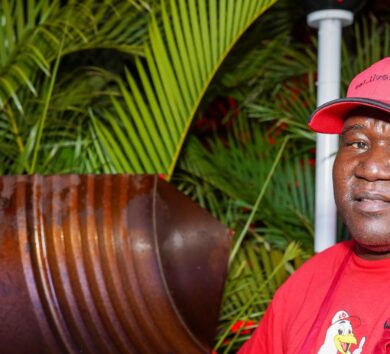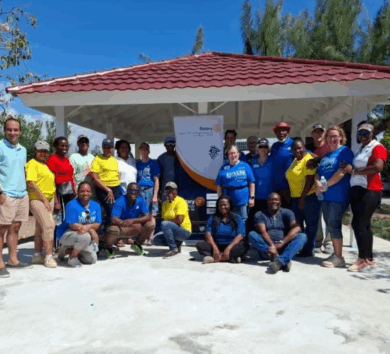

Durrant Pate/ Contributor
The Ocean Conservancy environmental group has released its International Coastal Cleanup (ICC) Report for 2024 in which Jamaica’s coastlines have been been shown to be a sore sight for plastic trash.
The 2024 report, which covers activities in 2023 shows that nearly eight million pounds of trash was collected from over 26,000 kilometres of coastline by 486,045 volunteers from 118 countries. The report highlights that while Jamaica has seen a reduction in banned items like straws and plastic bags, plastic pollution remains a major issue as evidence during beach cleanup exercises.
Plastic bottles were the most commonly collected trash item, which was also highlighted by the Jamaica Environment Trust (JET) at the recent media launch for ICC Day 2024.
Key statistics from the report

Plastic Bottles: A total of 199,000 plastic bottles were collected from Jamaica’s coastlines, accounting for 15% of the 1.3 million bottles collected worldwide. This also represents 35% of all plastic bottles collected in the Caribbean. Jamaica reported the third largest quantity of plastic bottles collected, after the Dominican Republic and The Philippines. In 2019 Jamaica collected the second largest quantity of plastic bottles after the Philippines.
- Plastic Bottle Caps: A total of 122,000 plastic bottle caps, 14% of the global total and 35% of the Caribbean’s total, were collected from Jamaica’s coastlines.
- Plastic Straws: Jamaica collected 3,886 plastic straws, contributing to less than 1% of the 416,000 straws collected globally.
- Plastic Food Containers: The 10,000 plastic food containers collected in Jamaica represent 5% of the total in the Caribbean.
- Plastic Grocery Bags: Jamaica collected 10,000 plastic grocery bags, less than 2% of the 563,000 bags collected globally.
Interestingly, the number one item collected worldwide last year was cigarette butts (close to two million), followed by plastic beverage bottles (nearly 1,400,000) and bottle caps (853,000). The top five items in the Caribbean were plastic bottles and caps, plastic and styrofoam food containers, and paper cups and plates.
Plastic bottles cause for concern

CEO of JET Dr Theresa Rodriguez-Moodie commented: “The ban on straws and bags has led to fewer of these items on our beaches, but the data shows a stark contrast with non-banned items like plastic bottles. Despite a voluntary deposit refund scheme, plastic bottles are still being discarded in large quantities, ending up on our beaches and in the marine environment.”
As such, JET is calling on the Government of Jamaica to take bold steps to reduce the country’s reliance on single-use plastics citing that“significant improvements are also needed in the island’s waste management system, and public awareness efforts on the impact of single-use plastics must be continued and enhanced to reduce plastic use and improve recycling.”
International Coastal Cleanup Day

International Coastal Cleanup Day will be commemorated on Saturday, September 21 with the Jamaica Environment Trust (JET) annual flagship cleanup at the Palisadoes Go-Kart Track.
It is being reported that JET has reached capacity in terms of the number of volunteers it needs for that location but there are many other cleanup sites across Jamaica, including the National Environment and Planning Agency’s (NEPA) activities in two locations in Kingston and St Catherine.







Comments